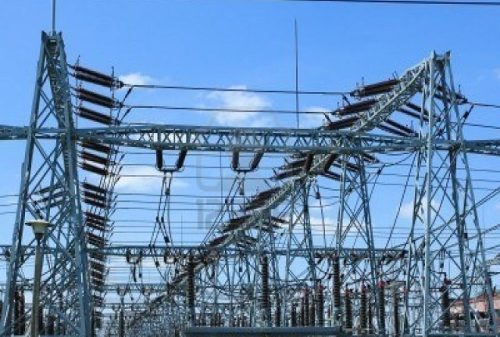The nation is facing a new wave of power outages following the shutdown of the national grid by disgruntled members of the Labour Unions.
The national grid plummeted to zero megawatts on Monday due to a complete disruption of power supply to all eleven electricity distribution companies across the country, as reported by Channels Television.
According to a statement from Ndidi Mbah, the General Manager of Public Affairs at the Transmission Company of Nigeria (TCN), the widespread blackout was caused by TCN staff, represented by the National Union of Electricity Workers (NUEE), who shut down all power substations nationwide at approximately 2:19 AM on Monday, leading to the national grid system’s collapse to zero megawatts.
“At about 1:15am this morning, the Benin Transmission Operator under the Independent System Operations unit of TCN reported that all operators were driven away from the control room and that staff that resisted were beaten while some were wounded in the course of forcing them out of the control room and without any form of control or supervision, the Benin Area Control Center was brought to zero.
“Other transmission substations that were shut down, by the Labour Union include the Ganmo, Benin, Ayede, Olorunsogo, Akangba and Osogbo Transmission Substations. Some transmission lines were equally opened due to the ongoing activities of the labour union,” the statement read in part.
On the power generating side, Mbah said units from different generating stations were forced to shut down some units of their generating plants.
She said, “The Jebba Generating Station was forced to shut down one of its generating units while three others in the same substation subsequently shut down on very high frequency. The sudden forced load cuts led to high frequency and system instability, which eventually shut down the national grid at 2:19 AM.”
Channels Television reported how Labour Unions after a four-hour meeting with the leadership of the National Assembly on Sunday evening in Abuja, the leadership of the Organised Labour said there was no going back on the nationwide industrial action slated to start on Monday.
“For now, we don’t have the power to call off the strike, tomorrow (Monday) morning, the strike will kick off as we take their (NASS) plea asking us to call off the strike to our various organs,” said Festus Osifo after the meeting with NASS leadership.
Osifo, the President of the Trade Union Congress (TUC), along with his counterpart in the Nigeria Labour Congress (NLC), Joe Ajaero, held discussions with Senate President Godswill Akpabio and Speaker of the House of Representatives Tajudeen Abbas in Abuja.
The meeting was part of a final push by legislators to persuade disgruntled workers to postpone their planned industrial action regarding a new minimum wage.
The decision of the Organised Labour came after a deadlock between the Federal Government and the unions concerning a new national minimum wage and the reversal of the recent electricity tariff hike.
The labour unions expressed concern that the current minimum wage of ₦30,000 is inadequate for the average Nigerian worker’s well-being. They noted that not all governors are adhering to the current wage award, which expired in April 2024, five years after the Minimum Wage Act of 2019 was signed by former President Muhammadu Buhari. According to the Act, the minimum wage should be reviewed every five years to align with the contemporary economic demands of workers.
Regarding efforts to restore lost power generation, Mbah stated that TCN began grid recovery around 3:23 AM, initiating the process at the Shiroro substation to supply bulk electricity to the Katampe Transmission Substation.



